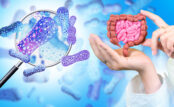As women enter their 40s and beyond, many experience significant changes in their sexual health and intimate relationships. These changes, while natural, can profoundly impact quality of life, self-confidence, and romantic partnerships. Understanding the causes behind these shifts and exploring available solutions can help women reclaim their sexual wellness and maintain fulfilling intimate relationships throughout midlife and beyond.
The Reality of Female Sexual Health After 40
Sexual difficulties become increasingly common as women age, with research indicating that these issues are particularly prevalent during the menopausal transition. More than a third of women in perimenopause or menopause report having sexual difficulties, from lack of interest in sex to trouble having an orgasm, according to Johns Hopkins Medicine. This statistic underscores the widespread nature of these challenges and the importance of addressing them openly and effectively.
The journey through perimenopause and menopause is highly individual, with the process generally taking about 7 years from beginning to end but may last up to 14 years. During this extended period, women may experience fluctuating symptoms that can significantly impact their sexual health and overall well-being.
Common Bedroom Issues Affecting Women Over 40
Declining Libido and Sexual Desire
One of the most frequently reported issues among women over 40 is a noticeable decrease in sexual desire. The main culprit is declining levels of estrogen, which can reduce a person’s desire to have sex and make sexual arousal more difficult. This hormonal shift affects not only the physical aspects of sexual response but also the psychological components of desire and arousal.
However, it’s important to note that not all women experience decreased libido during this time. Some people may experience a libido increase or decrease. These changes may be temporary or long lasting, highlighting the individual nature of sexual health changes during midlife.
Vaginal Dryness and Discomfort
Vaginal dryness is another prevalent issue that significantly impacts sexual comfort and pleasure for women over 40. Vaginal dryness can cause irritation, burning, and pain with intercourse. It’s common after menopause, and it also can happen in the years leading up to menopause. This condition occurs due to a drop in oestrogen levels that causes the walls of the vagina to be thinner and drier, which may cause vaginal irritation and pain during sex.
The impact of vaginal dryness extends beyond physical discomfort, often leading to avoidance of sexual activity and strain on intimate relationships. Many women find that what was once pleasurable becomes uncomfortable or even painful, creating a cycle of anxiety and avoidance around sexual intimacy.
Difficulty Achieving Arousal and Orgasm
Changes in sexual response patterns are common after 40, with many women reporting difficulty becoming aroused or reaching orgasm. Menopausal and postmenopausal women can experience decreases in both libido, orgasm, and frequency of coitus—most commonly because of physiologic changes due to menopause. These changes can be particularly frustrating for women who previously enjoyed active and satisfying sex lives.
Sleep Disruption and Energy Issues
Hormonal changes during perimenopause and menopause often disrupt sleep patterns, creating a cascade effect on sexual health. You may be less interested in sex due to symptoms such as hot flushes, night sweats, low energy levels, sleep problems and low mood. Chronic fatigue and mood changes can significantly impact sexual desire and the energy needed for intimate relationships.
Understanding the Root Causes
Hormonal Changes
The primary driver of sexual health changes after 40 is the natural decline in reproductive hormones, particularly estrogen and testosterone. These hormones play crucial roles in maintaining vaginal health, sexual desire, and overall sexual response. As levels decline during perimenopause and menopause, women may experience a range of sexual health challenges.
Physical Health Factors
Various health conditions that become more common after 40 can impact sexual function:
- Cardiovascular disease affecting blood flow
- Diabetes and metabolic changes
- Thyroid disorders
- Arthritis and joint pain affecting comfort during intimacy
- Medications for various conditions that may have sexual side effects
Psychological and Emotional Factors
The psychological impact of aging, body image changes, and life stressors can significantly affect sexual health. Many women struggle with:
- Changes in body image and self-confidence
- Stress from career demands, family responsibilities, or caregiving roles
- Depression or anxiety related to life transitions
- Relationship challenges or communication issues with partners
Lifestyle Factors
Modern lifestyle patterns can exacerbate sexual health issues:
- Sedentary lifestyle affecting circulation and energy
- Poor nutrition impacting overall health and hormone balance
- Chronic stress from multiple responsibilities
- Inadequate sleep affecting hormone production and mood
- Alcohol consumption and smoking impacting circulation
Professional Treatment Options
Medical Interventions
Healthcare providers offer several evidence-based treatments for female sexual health issues:
Hormone Therapy: Low-dose estrogen therapy, vaginal moisturizers and vaginal lubricants are among treatments for this condition and the discomfort it causes. Hormone replacement therapy can be systemic or localized, depending on individual needs and health profiles.
Prescription Medications: Various medications may be prescribed to address specific sexual health concerns, including FDA-approved treatments for female sexual dysfunction.
Vaginal Health Treatments: Estrogen therapy and dehydroepiandrosterone (DHEA) are the only hormone therapies for vaginal atrophy, offering targeted relief for vaginal dryness and discomfort.
Lifestyle Modifications
Healthcare providers often recommend comprehensive lifestyle approaches:
- Regular exercise to improve circulation, energy, and mood
- Stress management techniques including meditation and mindfulness
- Adequate sleep hygiene practices
- Nutritional counseling to support hormonal health
- Communication skills training for couples
Psychological Support
Professional counseling can address the emotional and relationship aspects of sexual health:
- Individual therapy for self-esteem and body image issues
- Couples therapy to address communication and intimacy challenges
- Sex therapy specifically focused on sexual function and satisfaction
- Support groups for women navigating similar challenges
The Importance of Open Communication
Many women suffer in silence with sexual health issues, often feeling embarrassed or believing that decreased sexual function is simply an inevitable part of aging. However, after menopause, libido declines, and changes in our bodies can make it difficult to get aroused, painful to have intercourse, and impossible to climax. It’s little wonder that many women become dissatisfied with sex, and some avoid intimacy entirely.
Open communication with healthcare providers, partners, and trusted friends can help break the silence surrounding these issues and lead to effective solutions. Healthcare providers are increasingly recognizing the importance of sexual health as a component of overall wellness and are better equipped to provide comprehensive care.
Hope for Renewed Intimacy
Despite the challenges, it’s important to recognize that sexual health issues after 40 are not insurmountable. Some women may enjoy sex more because they no longer worry about what other people think and feel a sense of freedom as they age. With proper understanding, appropriate treatment, and support, many women find ways to maintain or even improve their sexual satisfaction during midlife and beyond.
The key is recognizing that sexual health is an important component of overall wellness and seeking appropriate help when needed. Whether through medical treatment, lifestyle changes, psychological support, or natural alternatives, solutions are available for women ready to prioritize their sexual health and intimate relationships.

Vigorelle®: A Natural Approach to Female Sexual Enhancement
For women seeking natural alternatives to support their sexual health and intimacy, Vigorelle® offers a comprehensive topical solution designed specifically for female sexual enhancement. This water-based personal lubricant combines traditional herbal ingredients with modern formulation techniques to address multiple aspects of female sexual function and comfort.
Vigorelle® contains a carefully selected blend of natural ingredients including L-Arginine HCI, Ginkgo Biloba, Wild Yam, Damiana Leaf, Suma Root, and Peppermint Leaf, along with vitamins A, C, and E, hyaluronic acid, and Aloe Vera gel. These ingredients work synergistically to enhance blood flow, increase sensitivity, provide natural lubrication, and create a more pleasurable intimate experience. Dr. Karen Vieira, PhD, MSM, endorses Vigorelle® as a safe and effective solution for women looking to enhance libido, lubrication, and overall sexual pleasure, noting that the formula helps restore proper blood flow to the vaginal region while supporting hormone balance and sexual response.
What sets Vigorelle® apart is its immediate effectiveness and natural formulation. Unlike oral supplements that may take weeks to show results, Vigorelle® provides instant arousal enhancement and relief from vaginal dryness upon application. The product is developed for those who are chemically sensitive and health-conscious, containing no petrochemical by-products, artificial colors, flavors, or fragrances. It’s condom compatible, pH balanced, and features a pleasant minty fresh scent with a smooth, non-greasy consistency that mimics a woman’s natural lubrication. With its 67-day money-back guarantee and endorsement from medical professionals, Vigorelle® represents a natural, safe option for women ready to reclaim their sexual vitality and enhance their intimate relationships.






